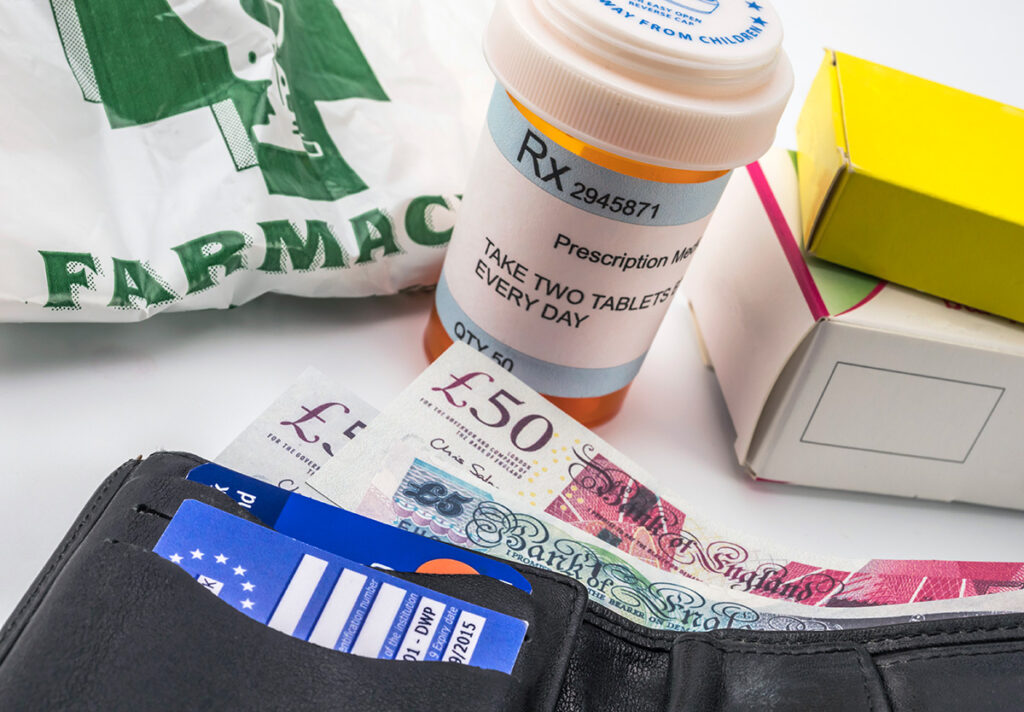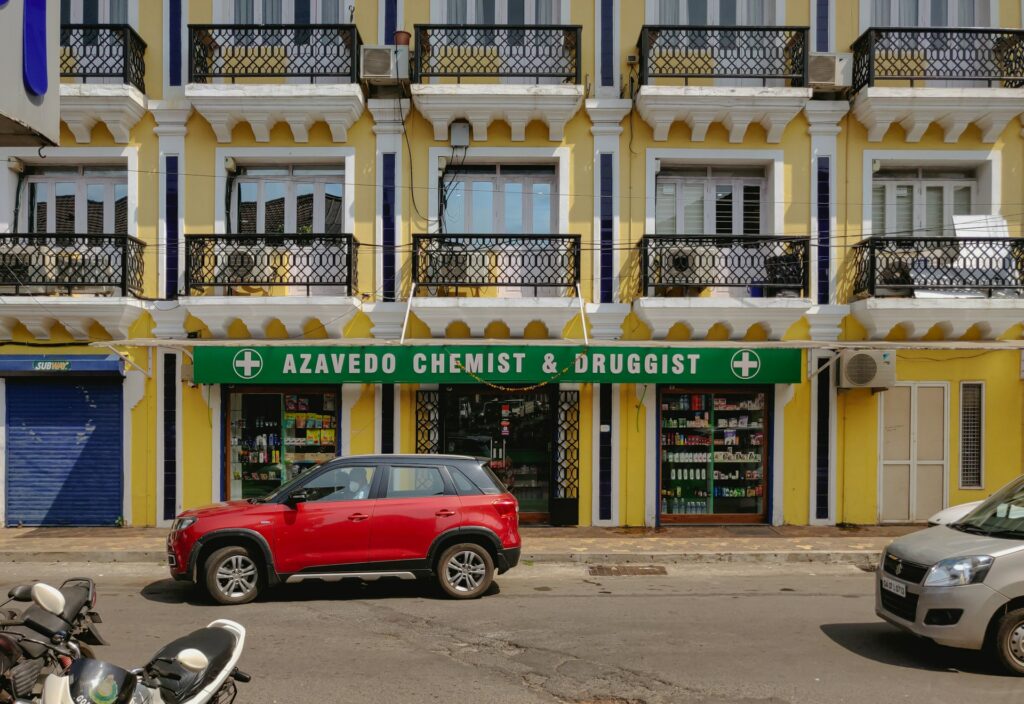Falling ill while travelling can be a daunting experience, especially when you’re in unfamiliar surroundings and away from your usual healthcare support. Navigating foreign healthcare systems and finding accurate information can become additional stressors. To mitigate these issues, it’s crucial to be prepared before you even start your journey.
Key Takeaways
- Ensure your health insurance covers international travel.
- Know how to access medical care in your destination and differentiate between emergency and non-emergency situations.
- Understand local health risks and have a repatriation plan if serious illness occurs.
Understanding Your Health Insurance Options
Navigating health insurance during international travel is crucial. Ensure you’re familiar with the specifics of your coverage, and how it pertains to the place you’re visiting. It’s vital to understand the types of insurance available and how they apply to you while travelling.
Travel Insurance Essentials
Travel insurance is designed to cover unexpected medical emergencies and events. Here’s what to look for in a good travel insurance policy:
- Coverage for Medical Expenses: Check for comprehensive coverage that includes hospital stays, doctor visits, and emergency medical treatment.
- Repatriation: Ensure the policy covers the cost of returning to your home country for medical care if needed.
- 24-hour Assistance: A good policy offers around-the-clock assistance for emergencies.
Essential Components of Travel Insurance
| Component | Importance |
|---|---|
| Medical Coverage | Must cover major and minor medical treatments abroad. |
| Emergency Assistance | 24/7 support for emergencies is vital. |
| Repatriation | Coverage for costs associated with returning home for treatment should be included. |
European Health Insurance Card and Global Health Insurance Card

If you are travelling within the European Union (EU) or to European Economic Area (EEA) countries, and you’re a UK resident, you might be eligible for a European Health Insurance Card (EHIC) or a Global Health Insurance Card (GHIC).
- EHIC: Offers access to state healthcare at a reduced cost or sometimes free, within the EU.
- GHIC: Replaces the EHIC for eligible UK residents travelling post-Brexit and offers equivalent protection within the EU and EEA.
Key Points for EHIC and GHIC
- Both cards offer similar coverage within the EU.
- EHIC cards are still valid if issued before the end of 2020 until their expiry.
- GHIC is not valid in Norway, Iceland, Liechtenstein, or Switzerland; for those countries, you’ll need separate coverage.
Ensure to apply for either an EHIC or a GHIC before travelling. Checking with the official government website for the latest information is always the best practice. Remember, these cards do not substitute for travel insurance; they complement it by providing state healthcare access but not private, and they do not cover repatriation costs.
What to Do in a Medical Emergency
If you find yourself in a medical emergency while abroad, it’s crucial to act swiftly to get the assistance you need. Here’s what you should do.
Contacting Local Emergency Services
In the event of a medical emergency, your immediate priority is to contact local emergency services. Throughout the European Union (EU), 112 is the standard emergency telephone number that can connect you to ambulance, fire, and police services. If you’re outside the EU, it’s vital to familiarise yourself with the country-specific emergency numbers.
Key Steps:
- Dial the local emergency number (e.g., 112 in the EU).
- Clearly state your emergency, location, and contact details.
- Don’t hang up until you’re told to do so. Follow the operator’s instructions.
Seeking Assistance from Your Embassy
After contacting emergency services, getting in touch with your embassy can be an important step. The British Embassy, for example, can assist in a medical emergency by providing a list of local doctors and hospitals, offering advice on local procedures, and helping you communicate with your insurance company if necessary.
Contact Information:
- Contact the embassy: Locate the nearest British Embassy through the Foreign, Commonwealth & Development Office (FCDO) website or by a simple online search.
- Insurance Company: Ensure that you have your policy number and contact details for your insurance company at hand. The embassy can help facilitate communication if necessary.
Remember to carry documentation such as your passport and insurance information with you to aid in this process. In cases where you’re hospitalised, and especially if you’re in intensive care (ICU), the embassy staff can also liaise with your relatives and help with the transfer of funds if required.
Seeking Medical Treatment Abroad
When you’re ill abroad, swift action to access healthcare can protect your well-being. Know how to navigate foreign medical systems and manage your medication needs during your international stay.
Finding a Doctor or Hospital
If you require a doctor or must visit a hospital while abroad, your first point of reference should be your travel insurance provider, which typically offers a 24-hour assistance line. They can guide you to the nearest medical facility where you’re likely to find English-speaking healthcare professionals. Alternatively, the embassy or consulate of your home country can provide a list of local doctors and healthcare providers.
- Embassy/Consulate Assistance: Can help with lists of local healthcare providers.
- Travel Insurance: Often includes a 24-hour assistance line and guidance to medical services.
In the case of needing immediate NHS hospital treatment, understand that this is not available outside the UK and you will be accessing the local equivalent. Keep any receipts and detailed medical reports for insurance claims.
Dealing with Medication and Prescriptions

If your treatment requires medication, always check the local laws regarding prescription medicines. What’s legal and available over the counter in the UK might be regulated differently elsewhere.
For prescriptions:
- Ensure you have a copy of your prescription in English.
- Visit a local pharmacist and clarify if your medication is available or if there’s an equivalent.
- Medication names can vary – bring the generic name of your drug to avoid confusion.
Always keep your medication in the original packaging and with your prescription to avoid issues with customs. If you’re running low on medication, consult a local doctor for a renewal and remember, their prescribing practices may differ from what you’re used to with the NHS.
Navigating Health Risks While Travelling
While travelling abroad, your health should take precedence. Understanding preventative measures and common health risks by destination can significantly reduce your chances of falling ill.
Preventative Measures
Vaccinations
Before embarking on your journey, consult with a healthcare provider to discuss required and recommended vaccinations, which may include:
- Hepatitis A and B
- Typhoid fever
- Yellow fever (particularly for travel to certain parts of Africa)
- Routine vaccinations such as influenza, measles, and mumps
Prophylactics
For destinations with a high risk of malaria, such as certain areas in Africa, antimalarial medications may be advised. Remember to begin taking these prophylactics before travelling, as directed.
Health Insurance
Ensure you have comprehensive travel health insurance that covers medical evacuation.
Hygiene Practices
Maintain good hand hygiene and be cautious about consuming local water or food that may lead to traveller’s diarrhoea.
Common Health Risks in Various Destinations
Malaria
In Africa, malaria is a significant risk, transmitted by mosquitos. Preventative measures include:
- Using DEET-containing insect repellents
- Sleeping under insecticide-treated bed nets
- Wearing long-sleeved shirts and trousers after dusk
Infectious Diseases
Get the latest information on infectious disease risks from reliable sources before travelling, as risks vary by destination and time of year.
By taking these precautions and being aware of the health risks specific to your destination, you can minimise your risk of illness and have a safer journey.
Planning for Repatriation and Recovery
When abroad and facing illness, it’s critical to consider how you will return home for treatment and manage your recovery afterwards.
Understanding Medical Repatriation
Medical repatriation involves transporting you back to your home country for medical care. Verify if you are eligible for repatriation based on your insurance policies. Medical evacuation insurance is distinct from standard travel insurance and specifically covers the costs of returning home for treatment. Review your policy’s terms, and if necessary, contact the Foreign, Commonwealth & Development Office (FCDO) for assistance.
In preparation, identify the nearest medical facility abroad and clarify the process for approving repatriation. Should you require immediate repatriation, having this information readily available can ensure a quicker response.
Arranging Post-Treatment Recovery
Post-treatment recovery entails planning for your healing process once back in the UK. Before departure, schedule an appointment with your local GP or specialist to ensure continuity of care. Should your health insurance include it, consider arranging for professional post-operative care or physical rehabilitation services.
Also, ascertain the extent to which your credit card benefits might offer support with recovery costs. Some credit card companies provide complimentary travel-related insurance that includes medical treatment or recovery services. It is judicious to have a clear plan for both your return and recovery period prior to travelling.
Frequently Asked Questions
When you’re ill abroad, accessing medical care and understanding your options can be crucial. It’s important to know the procedures for receiving care, managing hospital stays, repatriation, and what to do if you’re uninsured.
How can I receive medical care in a foreign country?
If you require medical attention abroad, contact your travel insurer or local embassy for assistance. In the EU, a European Health Insurance Card (EHIC) or a Global Health Insurance Card (GHIC) may provide access to state healthcare. Elsewhere, you may need to pay upfront for medical services.
What are the steps to repatriate a patient from overseas?
To repatriate, contact your travel insurance company immediately. They can coordinate with local medical services to arrange transportation back to the UK. If uninsured, you’ll need to discuss options with the local British embassy and may require a commercial medical escort or air ambulance at your own expense.
What are the steps to repatriate a patient from overseas?
To repatriate, contact your travel insurance company immediately. They can coordinate with local medical services to arrange transportation back to the UK. If uninsured, you’ll need to discuss options with the local British embassy and may require a commercial medical escort or air ambulance at your own expense.
How should I manage hospitalisation in a foreign country?
During hospitalisation, keep regular contact with your insurance provider. Ensure the hospital understands your insurance cover, and keep all receipts and medical reports, as these are essential for insurance claims. Notify your family and ensure you understand the treatment plan and costs involved.
What actions should be taken if I fall ill abroad without travel insurance?
Without insurance, you’ll likely need to pay for medical services yourself. Contact the nearest British embassy or consulate for advice and assistance. They can help with communication and provide information on local healthcare providers but cannot cover medical expenses.
How do I address health issues caused by travelling to different countries?
Prevent travel-related health issues by visiting a travel clinic for vaccines and advice before departure. If you experience health issues while abroad, such as traveller’s diarrhoea or altitude sickness, seek local medical advice early. Regular hand washing and consuming safe foods and drinks can reduce risks.
What provisions are there for British nationals getting sick abroad in terms of NHS support?
The NHS does not provide healthcare or cover medical costs abroad. However, British nationals may receive some NHS-funded aftercare upon their return. It’s important to have comprehensive travel insurance that includes healthcare coverage when travelling.








